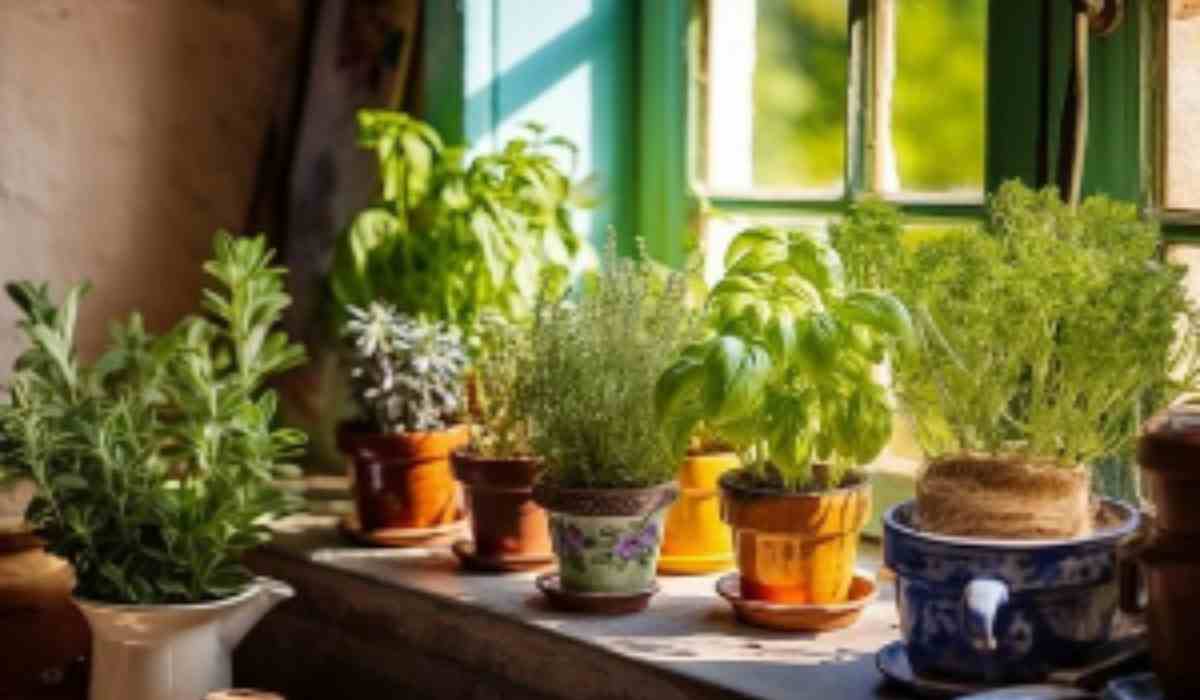Ants on the march can quickly turn a delightful kitchen scene into a frantic one. Thankfully, there’s a natural solution that adds beauty and flavour to your space: ant-repellent plants. These botanical cleaners utilise strong scents to deter those tiny trespassers, keeping your kitchen crumb-free.
Mint Reign
Peppermint and spearmint reign supreme with their potent aroma. This fresh fragrance disrupts ants’ communication trails, leaving them confused and disoriented. Mint thrives in both sun and shade, making it a versatile kitchen companion. Be mindful of its growth, as it can get rambunctious. Consider planting it in a container for better control.
Basil flavour
This culinary superstar boasts a strong scent that not only enhances your meals but also deters ants, flies and mosquitoes. Basil flourishes in sunny locations, so a windowsill placement is ideal. Prune it occasionally to encourage bushier growth and enjoy a constant supply of fresh leaves for both cooking and ant-repelling purposes.
Lavender calm
Known for its calming properties for humans, lavender’s floral fragrance sends shivers down the spines (or antennae) of ants. While it might grace your sachets and potpourris, this beautiful herb deters unwanted guests while adding a touch of elegance to your kitchen.
Rosemary cleanse
This fragrant herb not only adds a delightful touch to roasted meats but also repels ants with its pungent aroma. Rosemary thrives in well-drained soil and prefers plenty of sunshine. A sunny kitchen window is a perfect spot for this multi-tasking wonder.
Chrysanthemum bloom
Beyond their cheerful blooms, chrysanthemums pack a surprising punch against ants. These colourful flowers contain pyrethrum, a natural insecticide that disrupts ants’ nervous systems. Chrysanthemums are easy to care for and come in a variety of colours to brighten your kitchen.
Eucalyptus repellent
The strong, medicinal scent of eucalyptus is a natural ant repellent. While some may find it overpowering, it effectively deters these tiny invaders. Keep in mind that eucalyptus prefers well-draining soil and ample sunlight.
Citronella grass
Citronella grass, often used in mosquito repellents, is a natural choice for ant deterrence. This architectural plant adds a unique touch to your kitchen and emits a strong citrus scent that discourages ants from entering.
So, the next time you’re at the nursery, consider these fragrant friends. Not only will they add a touch of beauty and freshness to your kitchen but they will also help keep those pesky ants away from your home.
FAQs
How long do these plants take to deter ants?
The effectiveness can be immediate, but it depends on the severity of the infestation. Strong-scented plants like mint and citronella usually have a faster impact.
Do I need to crush the leaves for the plants to work?
No crushing is necessary. Most plants release their deterring scents naturally.
Can I use dried herbs instead of live plants?
Dried herbs have a weaker effect. Fresh plants constantly release essential oils that repel ants more effectively.
Where should I place these plants in my kitchen?
Placing them near entry points like windows or close to ant trails is most effective.
Are these plants safe for pets?
Some plants, like citronella and lavender, are generally safe for pets. However, it's always best to research specific plants before introducing them to your pet's environment.
What if I don't have a lot of sunlight in my kitchen?
Mint and certain basil varieties can tolerate partial shade. Consider rotating your plants for sunlight exposure if needed.
Do these plants completely eliminate ants?
The plants act as deterrents, not complete repellents. If the infestation is severe, you might need to combine them with other ant control methods.
| Got any questions or point of view on our article? We would love to hear from you. Write to our Editor-in-Chief Jhumur Ghosh at jhumur.ghosh1@housing.com |






